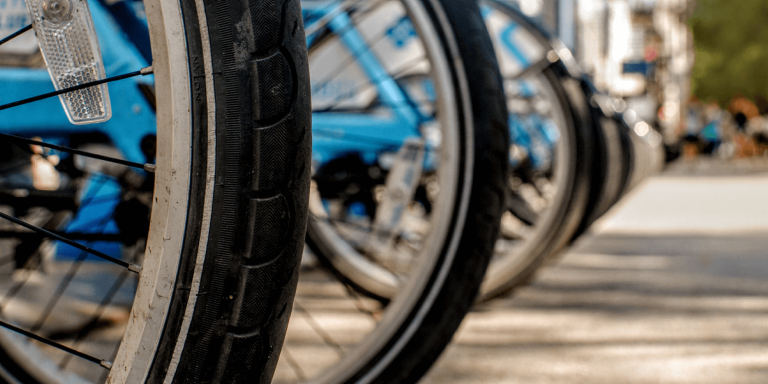
Shared bikes are a solution to the problem of urban traffic jams and the pollution they cause: the city of Lille set up V’Lille, its self-service bike rental service, in 2011. Users can check on an application if bikes are available in real time, Optimo Technologies, for its part, relied on AI to predict their availability but also the free places to return them.
Founded in Lille in 2022 by Geoffrey Pruvost and Laurent Decool, the start-up Optimo Technologies is a product of the Inria Start-up Studio, created in 2019 to provide a tailored support program for deeptech entrepreneurial project holders. The start-up and its project were presented at the Inria stand at the Viva Technologies trade show on June 15.
Inria Start-up Studio also helped Geoffrey Pruvost, the Optimo project leader, to create the application file for the I-PhD 2022 innovation competition, of which he was one of the winners.
The Optimo automated assistant project
Optimo aims to offer an intelligent multimodal route planner to convince motorists to do without their personal car whenever possible. The arrival of new mobility services in cities improves the possibilities of travelling without a private car, but the combination of these services increases the complexity of journeys.
The objective is to simplify trips with several means of transportation and to meet the needs of users. Thanks to artificial intelligence algorithms and predictive data on the availability of transport services, a personalized and reliable journey is proposed according to the user’s habits and profile.
The start-up offers companies the opportunity to participate in the ecological transition by financing their employees’ car-free journeys.
The V’Lille use case
The V’Lille service has 223 stations (38 new ones are planned very soon) and 2,200 bikes. Available 24 hours a day, 7 days a week, it is a simple solution to move quickly in the city while respecting the environment. However, users do not always find a place to drop off their rented bikes at the station that corresponds to their trip, which can be an obstacle to their use.
Laurent Decool comments:
“Pedaling for 20 minutes and having the unpleasant surprise of finding a full bike-share station, when there were still spaces available when you left, is nothing pleasant.”
A 96% reliable prediction algorithm
The startup’s developers used machine learning and trained a prediction algorithm based on a year’s worth of V’Lille usage history and about 100 parameters including weather data such as temperature, humidity and wind. They compared the predictions obtained with the actual availability of bikes or spaces at the scheduled time for several weeks and assure that their tool proved reliable in 96% of cases.
V’Lille users now have access to the availability of bikes or free spaces in real time but will also be able to view the predictions (up to 1 hour) on the website https://prevision.bike/.
New use cases
According to Geoffrey Pruvost, “the next step will be to predict availability and incidents in other modes of transport, such as buses, metro or train”.
Translated from Optimo Technologies, quand l’IA est mise au service de la mobilité urbaine et de la transition écologique









